Introduction
IT technology is transforming the waste management industry by enhancing efficiency, sustainability, and automation. With tools like IoT, AI, and data analytics, waste collection, recycling, and disposal processes are becoming smarter, more cost-effective, and environmentally friendly. From smart bins to route optimization and predictive maintenance, IT is driving innovation, helping companies reduce costs and meet sustainability goals. As cities grow and environmental challenges increase, IT’s role in waste management is critical in shaping a cleaner, more efficient future.
1. Smart Waste Management Systems
One of the most significant impacts of IT in waste management is the advent of smart waste systems. These systems are integrated with Internet of Things (IoT) sensors that monitor waste levels, temperature, and other relevant parameters.
Smart bins equipped with sensors can detect when they are full and notify waste collectors, optimizing collection schedules.
Data collected from these bins is transmitted to a central platform, where it can be analyzed to predict waste generation patterns and optimize collection routes.
This leads to reduced collection frequency, better route planning, and lower fuel consumption, significantly reducing the carbon footprint of waste management operations.
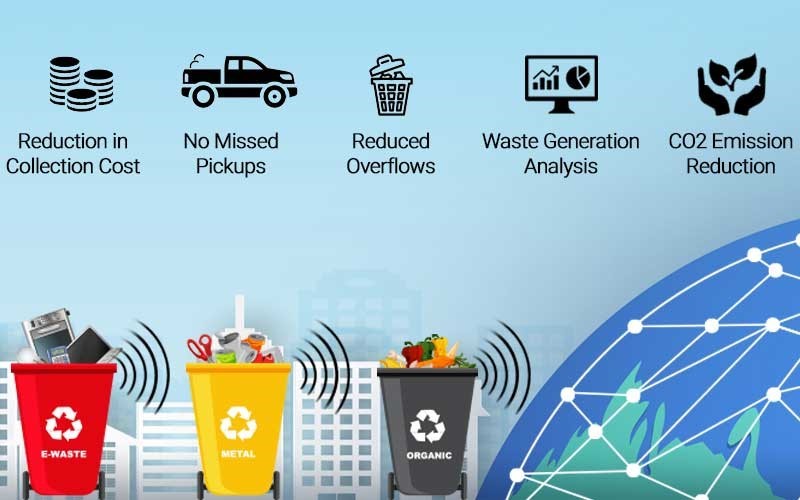
2. Data Analytics and Optimization
The application of data analytics in the waste management industry has opened doors to advanced decision-making and operational efficiencies. By using big data tools and algorithms, waste management companies can analyze vast amounts of data on waste production, trends, and material composition.
Predictive analytics allows waste managers to forecast waste generation and optimize resource allocation accordingly.
Data insights can also identify areas with the highest waste production, helping to allocate resources where they are needed the most.
This helps reduce operational costs, improve waste diversion rates, and ensure that recycling programs are more targeted and effective.
3. Cloud-Based Solutions for Real-Time Monitoring
Cloud computing has enabled real-time monitoring of waste management operations, making it easier for companies to track their fleets, monitor equipment performance, and ensure timely waste collection.
With cloud-based solutions, managers can access real-time data from any location, enabling better decision-making and quick responses to any disruptions.
Fleet management systems use GPS and cloud-based platforms to monitor truck movements, ensure they are following the most efficient routes, and track driver performance.
Real-time waste collection data ensures companies can optimize their resources, track performance metrics, and adjust as necessary to improve efficiency and reduce downtime.
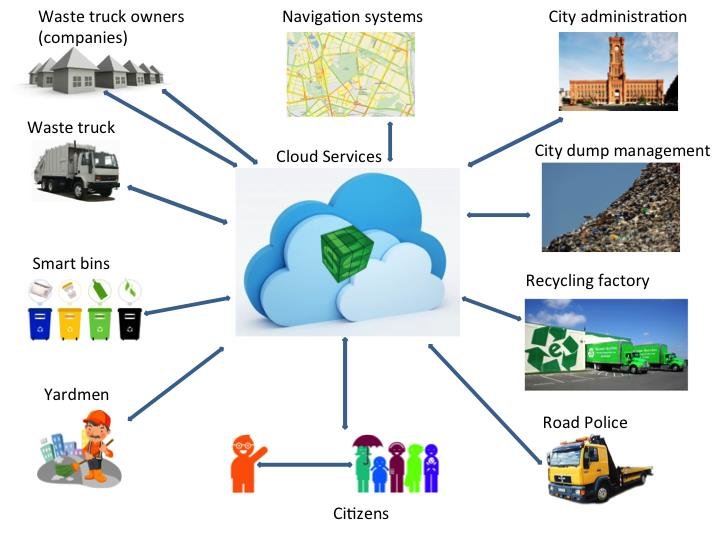
4. Automated Sorting and Recycling
Advancements in IT have greatly enhanced the automation of waste sorting and recycling processes, particularly with the use of artificial intelligence (AI) and machine learning (ML).
Automated systems equipped with AI-powered sensors can sort waste materials more efficiently and accurately than human workers, separating recyclables from non-recyclables. These systems use advanced image recognition and pattern analysis to make real-time decisions about the waste.
Robotic systems can further automate the physical sorting of waste, improving throughput and reducing human labor costs.
These technologies increase the efficiency of recycling, reduce contamination rates, and ultimately help divert more waste from landfills, promoting a more sustainable circular economy.
5. Blockchain for Transparency and Traceability
Blockchain technology offers enhanced transparency and traceability in the waste management sector. With its decentralized ledger system, blockchain can track each stage of waste handling, from collection to disposal or recycling.
Blockchain ensures data integrity, creating an immutable record of transactions and waste processing. This guarantees that waste is properly disposed of or recycled and reduces the risk of illegal dumping.
Companies can also provide transparent reporting to regulatory authorities, proving compliance with environmental regulations.
It could further support the concept of Extended Producer Responsibility (EPR), where manufacturers are held accountable for the waste their products generate, by enabling a clear tracking system for the lifecycle of products and packaging.
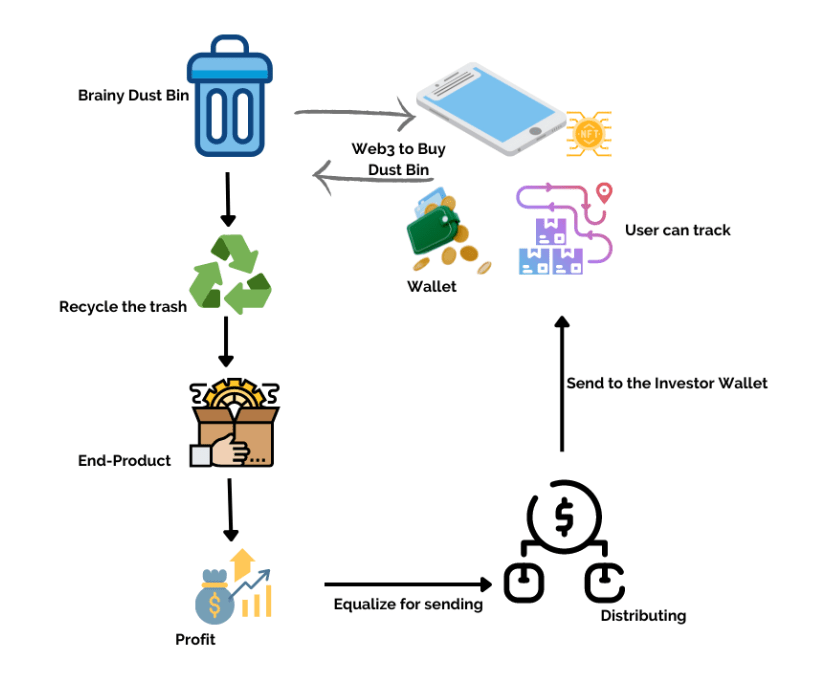
6. Waste-to-Energy Technologies
Waste-to-energy (WTE) plants convert waste materials into usable energy, such as electricity or heat. IT plays a crucial role in optimizing these processes.
Real-time data monitoring and control systems ensure that waste is processed efficiently, reducing energy loss and increasing plant output.
IT helps in controlling the complex processes within WTE plants, such as combustion, gasification, and anaerobic digestion, allowing for more precise operations and maintenance.
IT tools also assist in managing emissions, ensuring that waste-to-energy plants operate in compliance with environmental regulations and contribute to reducing carbon footprints.
7. Fleet Management and Route Optimization
Optimizing waste collection routes is a vital area where IT has a considerable impact. By using GPS tracking and route optimization software, waste management companies can ensure that their fleets are operating at maximum efficiency.
These systems calculate the most efficient routes based on real-time traffic data, road conditions, and fill-level data from smart bins.
Route optimization software can reduce fuel consumption, improve collection times, and minimize the overall operational costs of fleet management.
Additionally, it contributes to reducing carbon emissions, helping companies align with environmental sustainability goals.
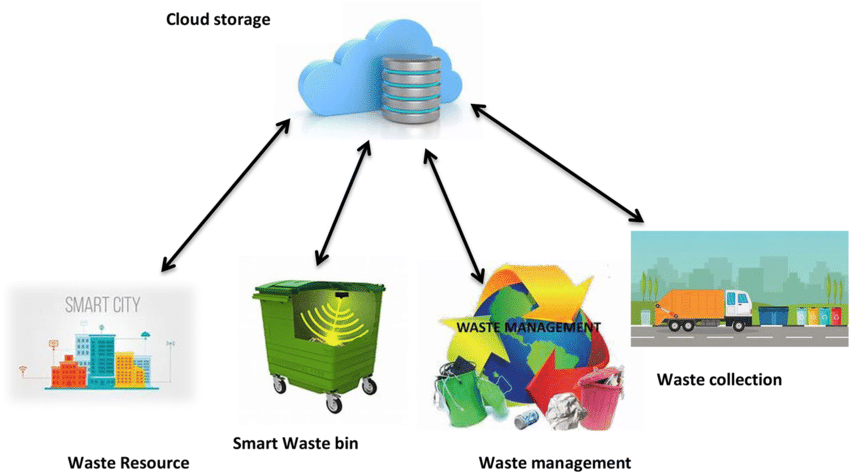
8. Mobile Applications for Customer Engagement
IT-driven mobile applications have significantly improved the customer experience in waste management.
Mobile apps allow customers to schedule waste pickups, report issues such as missed collections, or request bulk waste removal services.
These apps provide consumers with educational resources about proper waste disposal, recycling guidelines, and updates on waste collection schedules.
Mobile technology fosters direct communication between customers and service providers, improving overall satisfaction and promoting a higher level of public participation in recycling and waste management efforts.
9. Predictive Maintenance for Equipment
The use of IT in predictive maintenance has revolutionized the management of waste collection and processing equipment. Through the use of IoT sensors and machine learning algorithms, waste management companies can predict when a piece of equipment is likely to fail and take preventive measures before it breaks down.
This reduces the likelihood of unexpected downtime, ensuring that operations run smoothly and efficiently.
Predictive maintenance systems can monitor the performance of waste collection trucks, sorting machines, and other critical infrastructure, ensuring they remain in optimal condition.
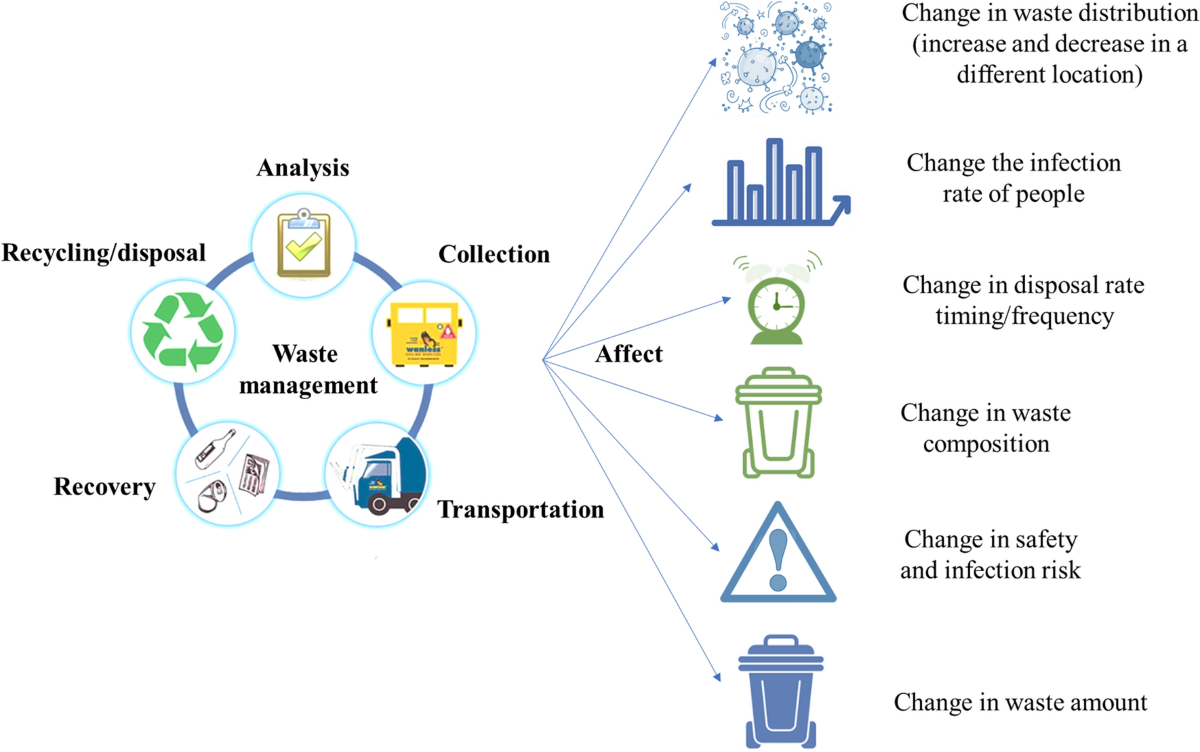
10. Sustainability and Regulatory Compliance
IT systems have made it easier for waste management companies to track and meet sustainability goals. Software tools can measure various environmental metrics, such as carbon footprint, waste diversion rates, and recycling efficiency, helping businesses stay on top of their sustainability initiatives.
IT also plays a key role in ensuring that companies remain compliant with environmental regulations.
Regulatory bodies can access real-time data, ensuring that waste is being disposed of properly and that recycling goals are being met.
With detailed data tracking and reporting, companies can demonstrate their commitment to sustainability, enhance their reputation, and meet regulatory standards efficiently.
11. Virtual Reality (VR) and Augmented Reality (AR) for Training
Virtual Reality (VR) and Augmented Reality (AR) technologies are used for training employees in waste management operations. These technologies offer immersive simulations of real-world waste handling scenarios, improving training efficiency and safety.
Workers can practice waste sorting, truck operations, and safety procedures in a virtual environment, which enhances learning and prepares them for real-world situations.
These training tools help reduce errors, improve safety compliance, and ensure that employees are well-prepared for their roles.
Conclusion
The integration of IT technologies in the Waste Management Technology industry is driving unprecedented efficiency, sustainability, and innovation. From smart waste management systems and predictive analytics to automated sorting and blockchain transparency, IT is enabling waste management companies to operate more effectively and contribute to a cleaner, greener environment.
By leveraging cloud computing, AI, IoT, and blockchain, the waste management industry is setting new standards in operational efficiency, compliance, and customer service while promoting a more sustainable and circular economy. This technological evolution is not just improving waste management but is also helping to address the global challenges of waste disposal and environmental preservation.
